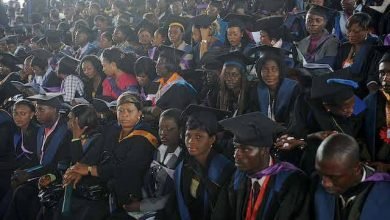List of Science Courses in Abia State Polytechnic
Science Courses in Abia State Polytechnic
Abia State Polytechnic offers a wide range of science courses that cater to the diverse interests and aspirations of aspiring students.
Whether you are interested in pursuing a degree in Engineering, Technology, or Science, Abia State Polytechnic has got you covered.
In this blog post, we will discuss the list of science courses offered at the institution and the top 3 frequently asked questions (FAQs) and answers on Google search.
Contents
Science Courses Offered
Abia State Polytechnic offers various science courses that allow students to pursue their passions and gain the necessary knowledge and skills for a successful career. Here is the list of science courses offered at the institution:
1. Biology: The biology program covers the study of living organisms, their structures, functions, and interactions with their environment. Students gain a strong foundation in areas like anatomy, physiology, genetics, and ecology.
2. Chemistry: The chemistry program explores the principles of chemistry, including organic, inorganic, analytical, and theoretical chemistry. Students gain hands-on experience in laboratory experiments and learn to apply this knowledge in real-world applications.
3. Physics: The physics program covers various aspects of physics, including mechanics, thermodynamics, electromagnetism, and quantum mechanics. Students develop critical thinking and problem-solving skills as they delve into the complexities of this science.
4. Computer Science: The computer science program teaches students the principles of computer hardware and software design, programming, database management, and network administration. The curriculum keeps pace with technological advancements, providing students with the necessary skills to thrive in the tech industry.
5. Statistics: The statistics program equips students with the necessary statistical skills to analyze and interpret data in various fields. Students learn how to collect, organize, and interpret data, enabling them to make informed decisions based on evidence.
6. Geology: The geology program delves into the study of earth’s composition, processes, and history. Students learn about the structure, composition, and evolution of rocks, minerals, and fossils, gaining insights into the earth’s formation and development.
7. Mathematics: The mathematics program provides students with a strong foundation in mathematical concepts, including algebra, calculus, geometry, and probability theory. These skills are applicable in various fields, including science, engineering, and finance.
8. Environmental Science: The environmental science program emphasizes the study of environmental systems and their impact on human well-being. Students gain a comprehensive understanding of environmental science principles, including ecology, pollution control, and sustainable development.
9. Surveying and Geoinformatics: The surveying and geoinformatics program equips students with skills and knowledge in land surveying, remote sensing, and geoinformatics. Students learn how to collect and analyze spatial data, enabling them to contribute to the mapping and spatial planning industries.
10. Electrical/Electronic Engineering: The electrical engineering program provides students with a comprehensive understanding of electrical and electronic circuits, electronics, and telecommunications. Students gain hands-on experience in laboratory experiments and develop practical skills in designing, testing, and maintaining electrical systems.
11. Mechanical Engineering: The mechanical engineering program covers various disciplines, including mechanics, thermodynamics, materials science, and engineering design. Students learn how to design, analyze, manufacture, and maintain mechanical systems, making them suitable for careers in the automotive industry, engineering, and manufacturing industries.
12. Civil Engineering: The civil engineering program focuses on building and construction, environmental engineering, transportation engineering, and water resources engineering. Students acquire the necessary skills to design, construct, and maintain infrastructure, contributing to the development of sustainable and resilient communities.
FAQs
What are the admission requirements for science courses in Abia State Polytechnic?
The admission requirements for science courses in Abia State Polytechnic may vary based on the specific course and department. However, in general, candidates need to meet the institution’s minimum entry requirements, which include O’Level credit passes in relevant subjects. Candidates must also satisfy the general entry requirements of the Polytechnic, such as minimum age and O’Level subject combination.
What are the job prospects for science graduates in Abia State Polytechnic?
Science graduates from Abia State Polytechnic have a wide range of job prospects. They can pursue careers in various sectors, including scientific research, healthcare, pharmaceuticals, technology, and environmental science. Some potential job titles include biochemist, chemist, physicist, data analyst, environmental engineer, software engineer, and mechanical engineer.
Does Abia State Polytechnic offer any scholarships or financial aid for science students?
Abia State Polytechnic offers various scholarships and financial aid programs to support students pursuing science courses. These scholarships may be based on academic performance, financial need, or other criteria. Students are advised to visit the institution’s website or contact the relevant department to inquire about available scholarships and the application process.






